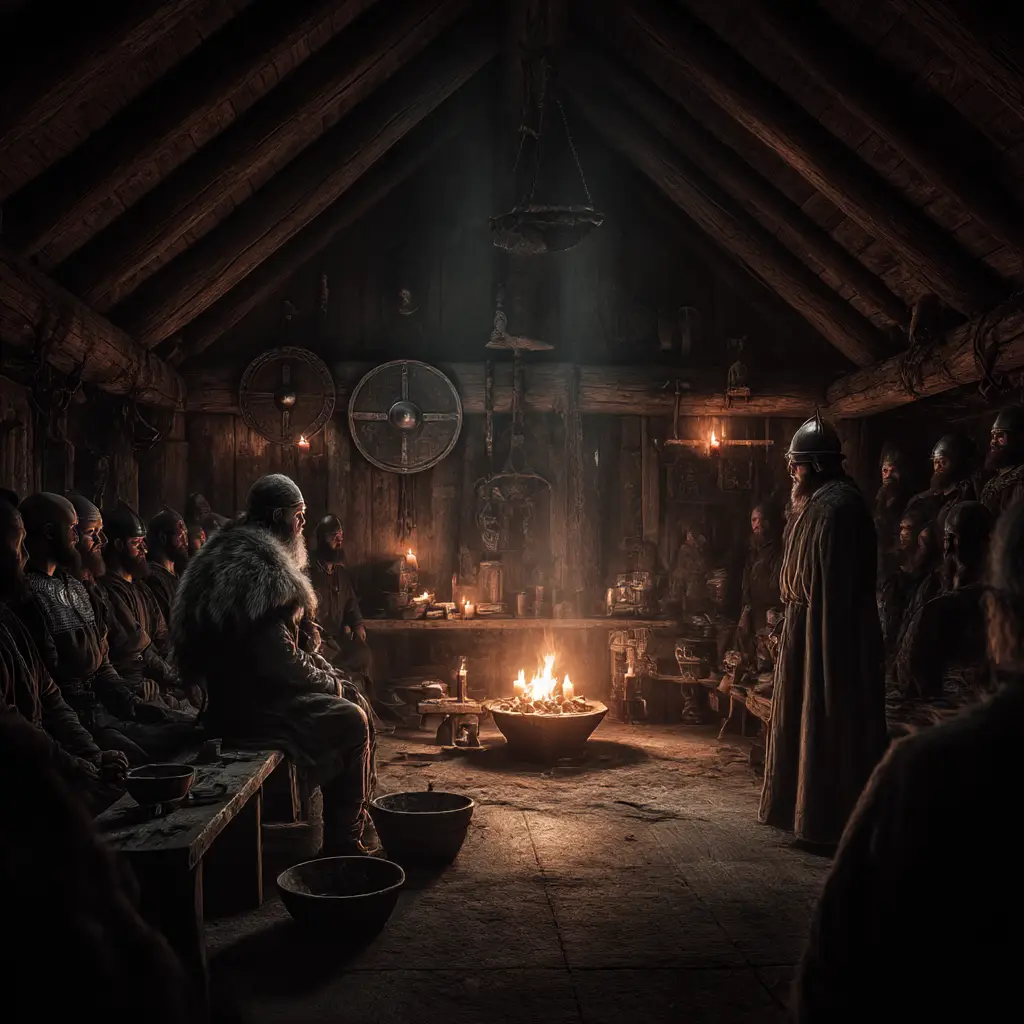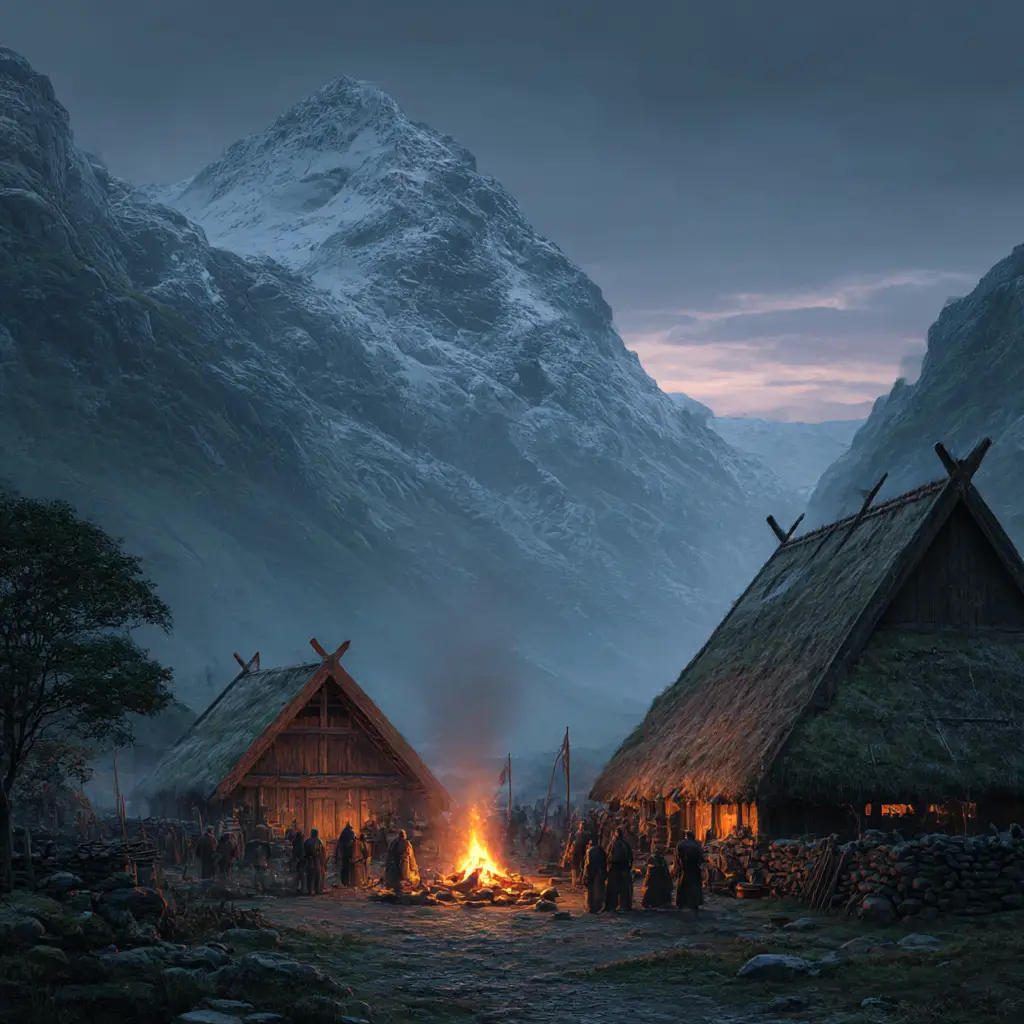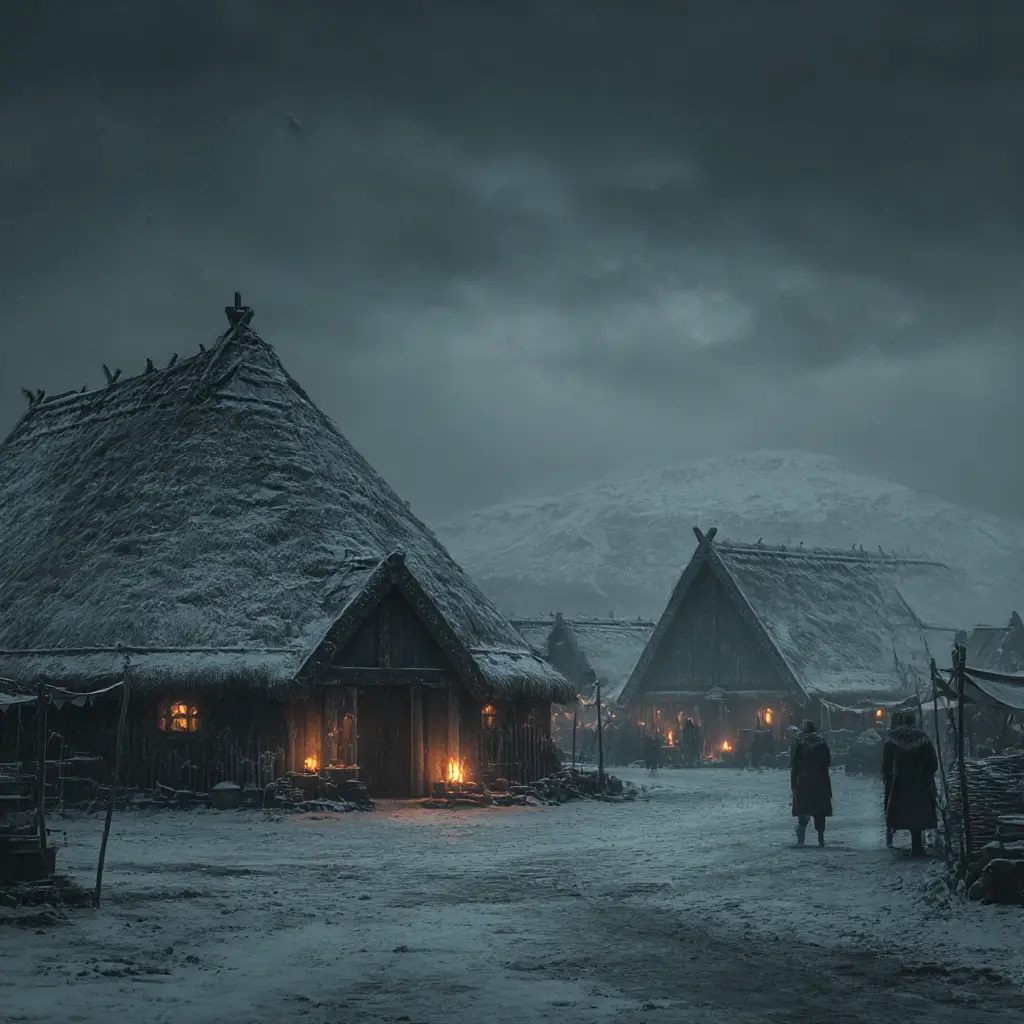As Njáls Saga unfolds, tensions among friends and families begin to deepen, leading to a series of conflicts that shape the course of the story. What begins as small disagreements and wounded pride gradually escalates into blood feuds, betrayal, and tragedy.
At the heart of these disputes is the close friendship between Njáll Þorgeirsson, known for his wisdom and calm judgement, and Gunnar Hámundarson, a brave and honourable warrior. Their bond represents the balance between law and action, intellect and strength. However, this harmony begins to crumble under the strain of jealousy, envy, and vengeance within their wider community.
The troubles start when insults and slights between households grow into larger feuds. Hallgerður Höskuldsdóttir, Gunnar’s strong-willed wife, becomes a key figure in the growing discord. Her pride and desire for revenge often clash with Gunnar’s sense of honour and restraint. A series of thefts, killings, and retaliations fan the flames of hostility, drawing more families into the conflict and making reconciliation harder to achieve.
Njáll, ever the peacemaker, repeatedly tries to mediate and uphold the law. His efforts, however, are undermined by a culture that values personal honour and vengeance as much as justice. Each attempt to settle a dispute legally only seems to postpone the inevitable outbreaks of violence.
The saga portrays this period as a slow but relentless unraveling of social order. Small acts of spite and revenge accumulate until they form a web of enmity that no one can escape. Loyalty, friendship, and justice are tested as alliances shift and the laws of Iceland struggle to contain human emotion and pride.
The growing disputes in Njáls Saga mark a turning point where the ideals of honour and fairness collide with the realities of vengeance and fate. They set the stage for the tragic events that follow, showing how personal grievances can destroy even the most honourable men when peace is lost and vengeance rules.


